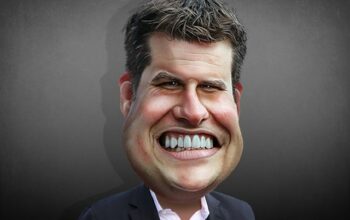Awise man once said, “History never repeats itself… but it certainly does rhyme.” Many of the specific challenges, political issues, and problems of the 1980s differ significantly from those of today, but many similarities still exist. Issues like abortion, pornography, homosexuality, and education have persisted from the 20th to the 21st century.
While the progression into cultural degeneracy has been slowed, it has not fully stopped. Today we reap the consequences. Despite this, there are still many lessons we can pull from this decade, especially with concern to the rise of the Religious Right. Almost none of his would have been possible without Jerry Falwell and the Moral Majority.
Jerry Falwell wasn’t always the political firebrand that many see him as today. According to his autobiography, Falwell originally did not see politics as an appropriate place for a preacher, writing “I sincerely believed that the Christian’s best contribution to social change was his or her faithfulness to our primary goals: studying the Word, preaching the gospel, winning souls, building churches and Christian schools, and praying for the eventual healing of our nation.”
Falwell’s outlook wasn’t rare among the Evangelicals of his time. He was raised during the rise of Fundamentalism in the United States, a movement marked with a mixed history. While the Fundamentalists were noble in their pursuit of biblicism in the face of modernism, there was a notable split in how they interacted with the world. Many notable Fundamentalists believed in complete separation from the world and all worldly pursuits, including politics. Falwell and his contemporaries were brought up in this way of thinking. But then came Roe v. Wade.
The Moral Majority was not a perfect organization and had many flaws, including its overreliance on dispensational theology and its premature end, but it was certainly effective for its day and can provide four key lessons that I lived we can learn from.
The most important part of building an organization is casting a vision that people can follow. A lack of vision signals a lack of leadership. Luckily for the Moral Majority, Jerry Falwell was a visionary.
Read more here from The American Reformer.

















